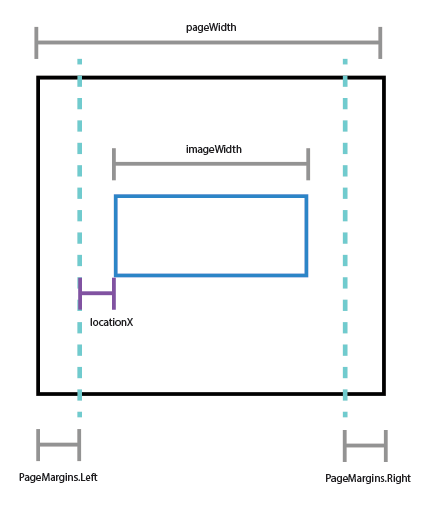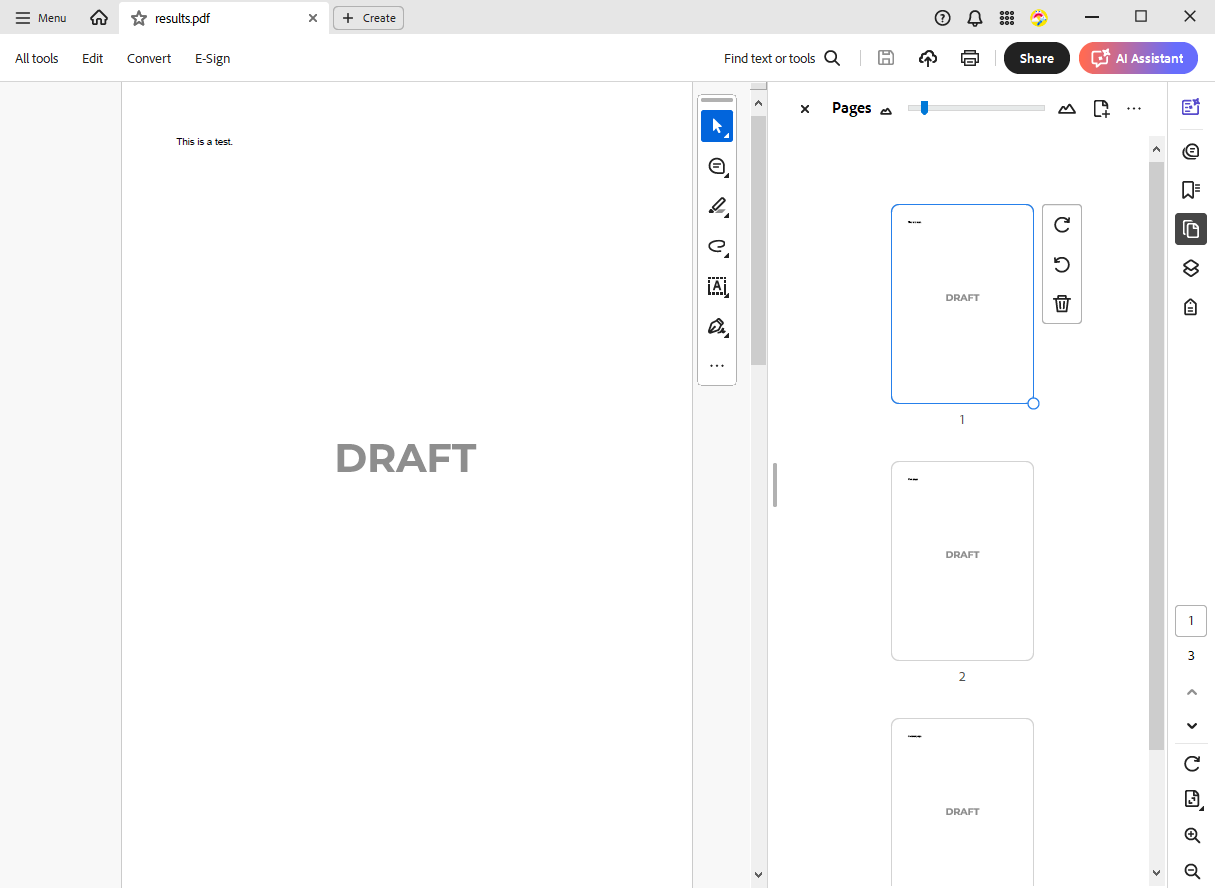Adding Watermarks to PDF Documents in .NET C#
This article shows how to add watermarks to PDF documents using TX Text Control .NET Server. It discusses how to use SVG images as watermarks and how to position them in the document.

Watermarks are a fundamental feature in document processing, widely used for branding, copyright protection, confidentiality, and visual enhancement. Whether it's a company logo subtly appearing in the background of an official report or a bold "CONFIDENTIAL" stamp overlaying a classified document, watermarks add both security and professionalism.
When exporting documents to PDF, adding scalable, high-quality watermarks is critical. Scalable Vector Graphics (SVG) watermarks offer a distinct advantage over raster images because they render sharply at any zoom level without loss of quality. This makes them ideal for professional document workflows.
In this article, we'll explore how to insert SVG watermarks into documents using TX Text Control to ensure that they remain sharp and properly positioned when exported to PDF.

Inserting SVG Watermarks
To add watermarks to documents, images are inserted into the page headers of each section. The contents of the headers and footers are automatically repeated on each page of the document. Watermark objects can be positioned behind the actual text. The text is still visible, and the watermark can be seen virtually in the background of a document.
To accomplish this, use the following Images.
public bool Add(Image image,
int pageNumber,
System.Drawing.Point location,
ImageInsertionMode insertionMode);FixedOnPage and BelowTheText are the required enumeration combination for InsertionMode:
hf.Images.Add(image,
1,
new System.Drawing.Point(0, 0),
TXTextControl.ImageInsertionMode.FixedOnPage |
TXTextControl.ImageInsertionMode.BelowTheText);If there are different page sizes and orientations, the image must be centered vertically and horizontally on each page of each section. The location of the background images is calculated using the following formula:
([Page width] - [image width] - [both page margins]) / 2
Calculating the Exact Position
The diagram below is an illustration of the various values that must be taken into account in the calculation of the exact horizontal position:

Code Example
The following code loops through all sections to add a header with a background image that is automatically repeated on all pages.
public void AddWatermark(TXTextControl.ServerTextControl tx, string imagePath)
{
tx.PageUnit = TXTextControl.MeasuringUnit.Twips;
TXTextControl.Image watermarkImage = new TXTextControl.Image { FileName = imagePath };
foreach (TXTextControl.Section section in tx.Sections)
{
// Remove existing headers for a clean state
section.HeadersAndFooters.Remove(TXTextControl.HeaderFooterType.All);
// Add new header to the section
section.HeadersAndFooters.Add(TXTextControl.HeaderFooterType.Header);
TXTextControl.HeaderFooter header = section.HeadersAndFooters.GetItem(TXTextControl.HeaderFooterType.Header);
// Insert watermark image into the header
header.Images.Add(
watermarkImage,
1,
new System.Drawing.Point(0, 0),
TXTextControl.ImageInsertionMode.FixedOnPage | TXTextControl.ImageInsertionMode.BelowTheText);
// Compute centered location
int locationX = (int)(section.Format.PageSize.Width - watermarkImage.Size.Width
- section.Format.PageMargins.Left - section.Format.PageMargins.Right) / 2;
int locationY = (int)(section.Format.PageSize.Height - watermarkImage.Size.Height
- section.Format.PageMargins.Top - section.Format.PageMargins.Bottom) / 2;
// Set the computed location
watermarkImage.Location = new System.Drawing.Point(locationX, locationY);
}
}This code creates a document with 3 pages and includes the watermark in it.
using (TXTextControl.ServerTextControl tx = new TXTextControl.ServerTextControl())
{
try
{
tx.Create();
// Set text content
tx.Text = "This is a test.\fNew page\fAnother page";
// Apply watermark
AddWatermark(tx, "draft.svg");
tx.Save("results.pdf", TXTextControl.StreamType.AdobePDF);
}
catch (Exception ex)
{
Console.WriteLine($"Error: {ex.Message}");
}
}When the document is exported to PDF, the watermark is rendered as a vector graphic, so it remains sharp and clear at any zoom level.

Conclusion
Adding watermarks to documents is a common requirement in professional document workflows. Using scalable vector graphics (SVG) for watermarks ensures that watermarks remain crisp and clear at any zoom level when exported to PDF. TX Text Control provides a powerful API for inserting SVG watermarks into documents, making it easy to create professional-looking documents with high-quality watermarks.
ASP.NET
Integrate document processing into your applications to create documents such as PDFs and MS Word documents, including client-side document editing, viewing, and electronic signatures.
- Angular
- Blazor
- React
- JavaScript
- ASP.NET MVC, ASP.NET Core, and WebForms
Related Posts
ASP.NETASP.NET CoreCertificate
Secure by Design: Dynamic Watermarking for Enterprise Documents in C# .NET
Contracts, NDAs, audit reports, invoices, and HR exports are created on demand and downloaded as PDFs. Once a document leaves your application, traditional access control is lost. Dynamic…
A Complete Guide to Converting Markdown to PDF in .NET C#
Learn how to convert Markdown to PDF in .NET C# using Text Control's ServerTextControl component. This guide covers setup, conversion process, and customization options for generating high-quality…
ASP.NETASP.NET CoreDocument Creation
Why PDF Creation Belongs at the End of the Business Process
This article discusses why placing PDF creation at the end of the business process is important for ensuring accuracy and efficiency. The most scalable systems delay PDF generation until the…
Designing the Perfect PDF Form with TX Text Control in .NET C#
Learn how to create and design interactive PDF forms using TX Text Control in .NET C#. This guide covers essential features and best practices for effective form design.
Why Defining MIME Types for PDF/A Attachments Is Essential
The PDF/A standard was created to ensure the long-term reliable archiving of digital documents. An important aspect of the standard involves properly handling embedded files and attachments within…






